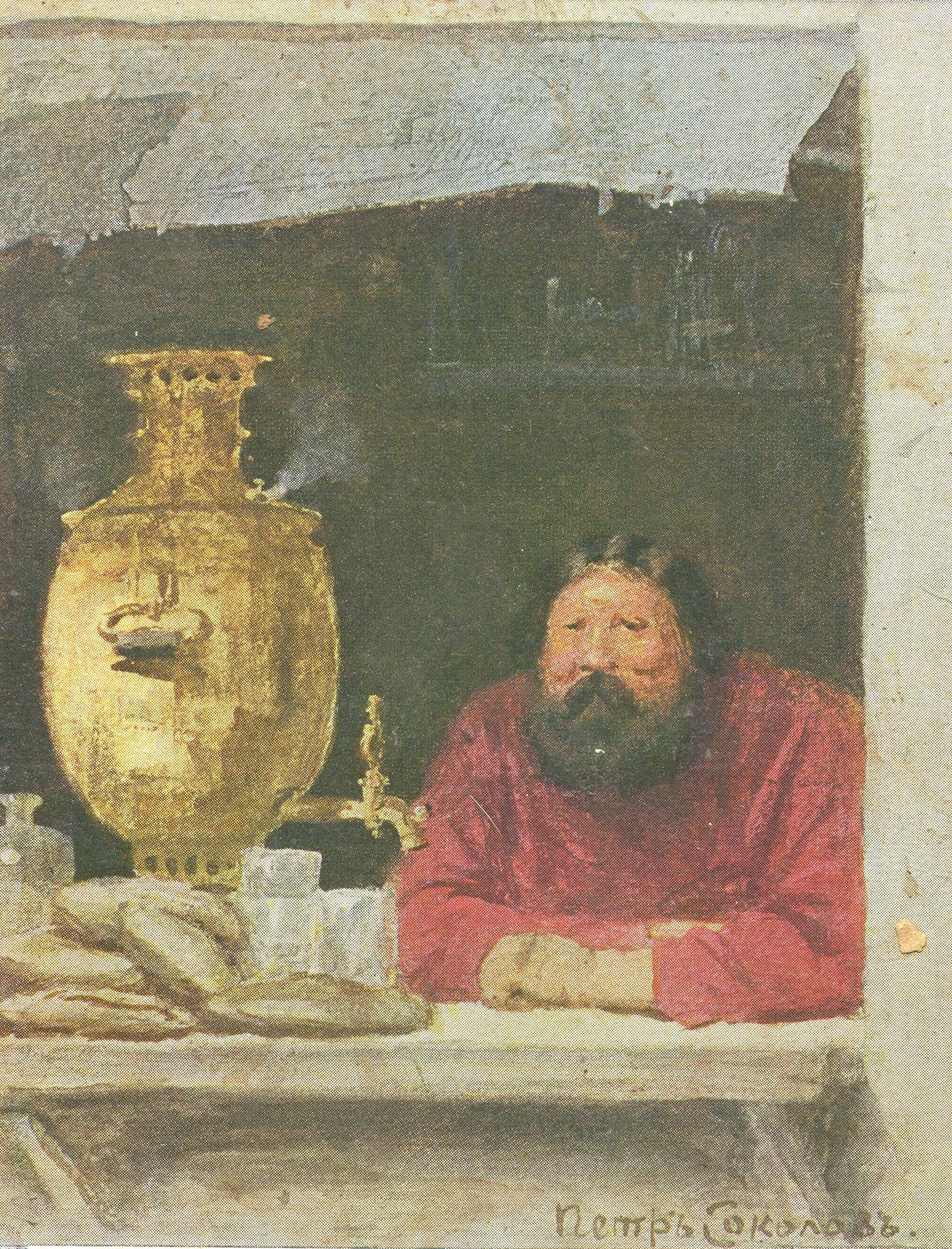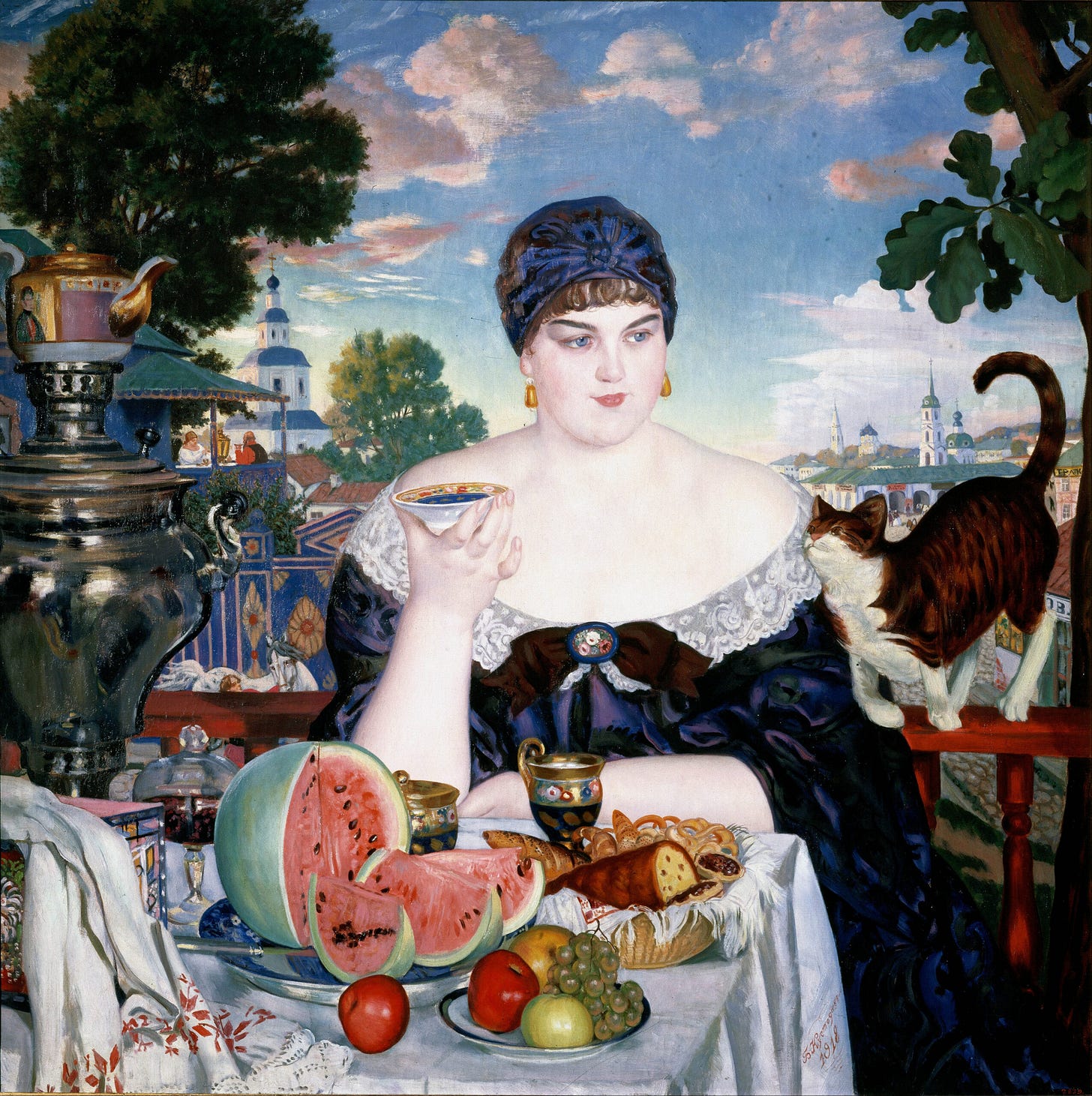In Russia, tea party is a spicy component in everyday life. People invited only the dearest people home на чай1 and never пили его пустым — без варенья или выпечки2. Until now we’ve drunk tea on holiday or most important days with cakes and chocolate, in the dark evening at kitchen, in the middle of the day or in the early morning .
Initially instead of tea, we have had other beverages such as взвары, сбитни, квас, кисели which you still can try everywhere (personally, the best sbiten I have tried in Pskov and Pechory, the best mug of kvas in the streets from the yellow barrels). We have brewed young leaves of blackcurrant and apples (or anything else, even the pines). I still do it when I go to our vegetable garden or granparents. Anyway, the tea tradition occured in the 17th century thanks to the Chinese merchants. In 1638, засушенные листья3 привезли ко двору Михаила Фёдоровича Романова в качестве подарка4 and in a couple of years it became a beverage of the well-to-do, eventhough it considered as a remedy by the end of this century.

By the 19th century love of tea spread throughout all Russia: everyone enjoyed the beverage — from the noble families to peasants. For Europe it was quite unusual because in its West part tea was so expensive that an average citizen coul not purchase it even for Christmas. Marquis de Custine testified that «Русские, даже самые бедные5, имеют дома чайник и медный самовар6 и по утрам и вечерам пьют чай в кругу семьи7… the rustic simplicity of their home forms a striking contrast with the elegant and delicate drink that they drink in it.”
В дореволюционной России летние чаепития8 с самоваром были символом неспешной, расслабленной жизни9. Сначала кипятили воду10, настаивали11 чай, а потом медленно-медленно его остужали12. И «кушали» напиток с разными добавками: с дорогим сахаром, мёдом, хлебом (чаще чёрным, чем белым) и даже солёными огурцами13. С напитком могли играть, пока он остывал: в кружку бросали кусочек сахара, пропитанного купоросным маслом, и поджигали его — чай «горел»14.

During summer (and recently we had Kupala Night, the time when herbs are at its best condition) we have folk festivals. Before the peasants prepared beforehead collecting herbs which added to black tea such as иван-чай, земляничный лист, чабрец, душицу, кожуру яблок, бруснику и изюм. И хотя раньше это считалось15 a sign of poverty (крестьяне хоть и16 покупали чай, но совсем в маленьких граммовках и разбавляли17 его другими травами), сегодня сборы18 и фруктовые чаи высоко ценятся19. Их пьют для поднятия иммунитета20, лечения болезней, улучшения тонуса организма и просто ради удовольствия.
I hope in the coming Sunday evening you will cheer yourself up with a good cup of tea.
До следующего письма!
for tea
dried leaves
as a gift
the poorest
a copper samovar
with their families\ in the family circle
summer tea-drinking
relaxed, unhurried lifestyle
boiled water
steeped
cooled down
pickles
burn
it was considered
though
diluted with
<tea> collections
are highly valued




Как же вы вкусно и интересно пишете!